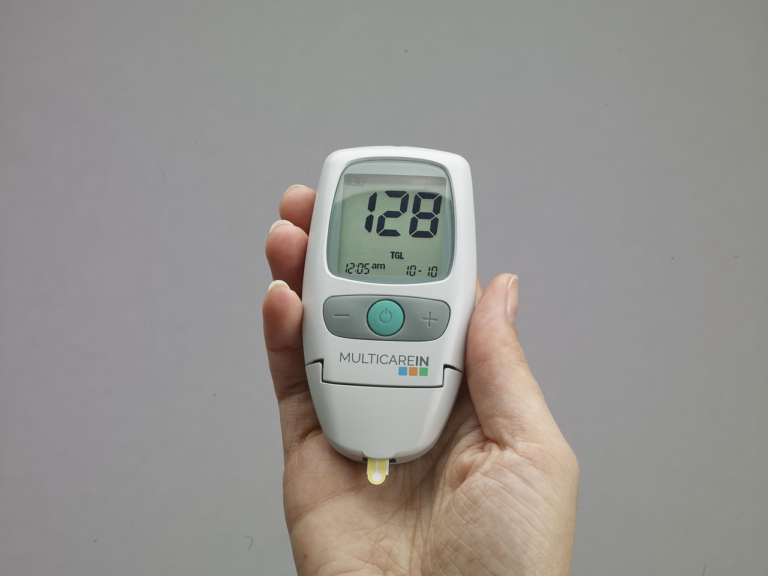The Role Of Mindfulness In Managing Blood Sugar Levels For Pregnant Women With Gestational diabetes
#ez-toc-container {
background: #f9f9f9;
border: 1px solid #aaa;
border-radius: 4px;
-webkit-box-shadow: 0 1px 1px rgba(0, 0, 0, .05);
box-shadow: 0 1px 1px rgba(0, 0, 0, .05);
display: table;
margin-bottom: 1em;
padding: 10px 20px 10px 10px;
position: relative;
width: auto;
}
.ez-toc-container-direction {
direction: ltr;
}
.ez-toc-list-level-1 a{
font-weight:bold;
}
Table of Contents
1. Introduction to Gestational Diabetes and its Impact on Pregnancy
Gestational diabetes is a prevalent condition that affects a significant number of expectant mothers worldwide. It is characterized by high blood sugar levels that develop during pregnancy and usually disappear after childbirth. Although gestational diabetes is a temporary condition, it can have significant implications for both the mother and the baby if not managed effectively. This segment delves into an overview of gestational diabetes, exploring its causes, risk factors, the importance of blood sugar management during pregnancy, and the role of lifestyle modifications and alternative approaches.
Overview of Gestational Diabetes: Causes and Risk Factors
Gestational diabetes occurs when a woman’s body cannot produce enough insulin during pregnancy, leading to elevated blood glucose levels. This condition typically develops during the second or third trimester. Several factors contribute to the development of gestational diabetes, although the exact cause remains uncertain. Below is an overview of the causes and risk factors associated with this condition:
- Hormonal Changes: Pregnancy induces numerous hormonal changes, which can interfere with the body’s ability to utilize insulin effectively. This resistance leads to elevated blood sugar levels.
- Genetic Factors: A family history of diabetes can increase the risk of developing gestational diabetes. Specific genetic markers may predispose some women to this condition.
- Obesity: Being overweight or obese prior to pregnancy significantly raises the risk of gestational diabetes. Excessive body weight can impact insulin function.
- Age: Women aged 35 and older face a higher risk of developing gestational diabetes compared to younger women.
- Ethnicity: Certain ethnic groups, including African American, Hispanic, Native American, and Asian, are more predisposed to developing gestational diabetes.
- History of Gestational Diabetes: A previous pregnancy affected by gestational diabetes increases the likelihood of recurrence in subsequent pregnancies.
- Polycystic Ovary Syndrome (PCOS): Women with PCOS are at a heightened risk due to underlying insulin resistance associated with this condition.
Importance of Blood Sugar Management During Pregnancy
Proper blood sugar management during pregnancy is critical for ensuring the well-being of both the mother and the developing baby. Uncontrolled gestational diabetes can lead to various complications:
- For the Mother:
- High Blood Pressure and Preeclampsia: Gestational diabetes can increase the risk of preeclampsia, a severe condition characterized by high blood pressure that threatens both maternal and fetal health.
- Cesarean Delivery: Women with gestational diabetes have a higher likelihood of delivering via cesarean section due to potential complications during vaginal delivery.
- For the Baby:
- Macrosomia: Excessive maternal blood sugar can lead to macrosomia, where the baby grows larger than normal, increasing the risk of birth injuries.
- Preterm Birth and Respiratory Issues: Uncontrolled blood sugar levels can result in preterm birth and associated respiratory problems for the newborn.
- Neonatal Hypoglycemia: After birth, the baby may experience low blood sugar levels due to excessive insulin production stimulated by the mother’s high glucose levels.
The Role of Lifestyle Modifications and Alternative Approaches
Effective management of gestational diabetes primarily revolves around integrating lifestyle modifications and monitoring strategies to maintain optimal blood glucose levels. Here are some essential lifestyle modifications and alternative approaches:
- Balanced Diet: Adopting a well-balanced diet is fundamental for managing gestational diabetes. A diet rich in whole grains, lean proteins, healthy fats, fruits, and vegetables while limiting refined sugars and carbohydrates is crucial.
- Regular Exercise: Physical activity is an effective measure for controlling blood sugar levels. Incorporating moderate exercise, such as walking, swimming, or prenatal yoga, can improve insulin sensitivity and promote overall health during pregnancy.
- Regular Monitoring: Consistent monitoring of blood sugar levels helps to track the effectiveness of dietary changes and exercise, allowing timely adjustments under the guidance of a healthcare provider.
- Alternative Therapies: Some women explore alternative therapies such as acupuncture, certain supplements, and herbal remedies to support gestational diabetes management. However, it is essential to consult with healthcare professionals before starting any alternative interventions.
- Education and Support: Participating in educational sessions and seeking support from healthcare professionals and support groups helps in navigating the challenges posed by gestational diabetes effectively.
In conclusion, gestational diabetes is a condition that significantly impacts pregnancy, necessitating comprehensive management strategies to mitigate associated risks. Understanding the causes, risk factors, and importance of blood sugar management is pivotal for expectant mothers. Lifestyle modifications, including a balanced diet, regular exercise, alternative approaches, and continuous monitoring, play a crucial role in ensuring a healthy pregnancy and minimizing complications related to gestational diabetes. By adopting informed choices and working closely with healthcare providers, expectant mothers can navigate this challenge effectively, aiming for a positive pregnancy outcome.

2. Understanding Mindfulness: A Holistic Approach
In this segment, we delve into the multifaceted world of mindfulness, unraveling its definition, core principles, and its seamless integration into pregnancy care. We’ll also explore how mindfulness is a potent tool for enhancing overall well-being. By optimizing your understanding of mindfulness, you’ll be empowered to leverage its benefits efficiently.
Definition and Principles of Mindfulness
Mindfulness, in its essence, is the practice of maintaining a non-judgmental awareness of one’s thoughts, emotions, and sensations in the present moment. This ancient practice, rooted in Buddhist traditions, has been adapted and embraced in contemporary wellness strategies due to its myriad benefits.
- Present Moment Awareness: Mindfulness emphasizes focusing on the present moment, fully engaging with the current experiences without distraction.
- Non-judgmental Observation: A core tenet of mindfulness is observing thoughts and feelings without judgment, thereby fostering a balanced perspective.
- Acceptance: Acknowledging and accepting one’s emotions and thoughts as they are, rather than resisting or fighting them.
- Intentional Focus: Deliberately directing attention and maintaining focus, which can enhance mental clarity and concentration.
These principles collectively aid in cultivating a heightened sense of awareness, emotional regulation, and enhanced cognitive functioning.
How Mindfulness Integrates with Pregnancy Care
Pregnancy is a complex journey that encompasses physical, emotional, and psychological transformations. Integrating mindfulness into pregnancy care can provide profound benefits for both the expectant mother and the developing fetus.
- Enhancing Emotional Well-being: Mindful practices help pregnant women to manage stress and anxiety, common during pregnancy, by promoting relaxation and emotional balance.
- Improved Pain Management: Techniques such as mindful breathing and visualization can aid in coping with pregnancy-related discomforts and labor pain.
- Strengthening Maternal-Fetal Bond: Mindful meditation allows expectant mothers to connect deeply with their unborn child, fostering a nurturing and loving bond.
- Better Sleep Patterns: Mindfulness can aid in alleviating pregnancy-related insomnia by promoting relaxation and a peaceful mental state.
Professionals in the realm of pregnancy care increasingly advocate mindfulness as a complementary strategy, recommending it to expectant mothers as a means of nurturing both their own well-being and that of their child.
Benefits of Mindfulness Practices for Overall Well-being
Beyond pregnancy, the advantages of mindfulness extend to various facets of general health. Let’s explore how mindfulness practices can significantly uplift overall well-being:
- Reduction in Stress Levels: Regular mindfulness practice has been shown to decrease stress hormone levels, leading to improved resilience against stressors.
- Enhanced Emotional Health: By fostering self-compassion and acceptance, mindfulness contributes to emotional stability and reduces symptoms of depression and anxiety.
- Boost in Cognitive Functions: Mindfulness improves cognitive abilities such as attention, memory, and problem-solving skills by encouraging focused mindfulness practices.
- Promotion of Healthy Lifestyles: Individuals who practice mindfulness tend to make healthier lifestyle decisions, including better nutritional choices and increased physical activity.
- Improved Relationships: Mindfulness enhances interpersonal connections by promoting empathy, communication, and understanding.
By integrating mindfulness into daily routines, individuals can harness these benefits to lead a more balanced and fulfilling life. Whether through meditation, mindful breathing, or simple awareness exercises, the practice of mindfulness offers transformative potential for personal growth and healing.
In conclusion, understanding mindfulness and integrating it into various aspects of life, including pregnancy care, can provide substantial benefits for emotional and physical health. The practice encourages a unified approach to well-being, bringing peace and clarity to the minds of those who embrace it.

3. The Science Behind Mindfulness and Blood Sugar Regulation
In recent years, there has been growing interest in the role mindfulness can play in managing various aspects of health, including blood sugar regulation. Scientific studies increasingly highlight how mindfulness practices may positively impact glucose metabolism, offering insights into potential therapeutic strategies for diabetes and other metabolic disorders. This segment delves into the interconnections between mindfulness, stress reduction, hormonal balance, and blood sugar control.
The Science Behind Mindfulness and Blood Sugar Regulation
Mindfulness, a practice deeply rooted in Buddhist meditation, emphasizes the importance of being present and fully engaged in the moment without judgment. This practice has been linked to a broad range of health benefits, including mental well-being, stress reduction, and improved metabolic function.
Analysis of Studies Linking Mindfulness to Blood Sugar Control
- Integrative Approach: Numerous studies indicate that mindfulness interventions can serve as an integral component of managing type 2 diabetes. By fostering a holistic approach to health, mindfulness may reduce the psychological distress that often accompanies chronic conditions.
- Clinical Evidence: A 2015 study published in the Journal of Behavioral Medicine found that mindfulness-based stress reduction (MBSR) programs led to significant improvements in HbA1c levels, a marker of long-term blood glucose control, in participants with type 2 diabetes.
- Reduction in Emotional Eating: Mindfulness practices can decrease instances of emotional overeating, which is often a contributing factor to impaired blood sugar control. By increasing awareness of hunger cues and emotional triggers, mindfulness can help individuals make healthier food choices.
Mechanisms Through Which Mindfulness Impacts Glucose Metabolism
Understanding the mechanisms behind mindfulness and its effect on blood sugar is crucial to optimizing its use in clinical settings. Below are key pathways through which mindfulness can influence glucose metabolism:
- Stress Reduction: Stress is a significant factor that can elevate blood sugar levels. Mindfulness mitigates stress by activating the parasympathetic nervous system, leading to a decrease in cortisol, a hormone known to increase blood glucose.
- Improved Insulin Sensitivity: Some studies suggest mindfulness can enhance insulin sensitivity. By reducing chronic low-grade inflammation and psychological stress, bodily cells become more effective at utilizing insulin, aiding in better glucose regulation.
- Enhanced Self-Regulation: Mindfulness fosters enhanced emotional and behavioral self-regulation. This heightened awareness can improve adherence to dietary guidelines and regular physical activity, both critical to maintaining optimal blood sugar levels.
The biological underpinnings of how mindfulness affects these mechanisms are under continuous investigation. However, current evidence supports a multifaceted approach where psychological well-being and metabolic health are deeply interconnected.
Insights from Research on Stress Reduction and Hormonal Balance
Stress management and hormonal balance are crucial elements of blood sugar regulation. Research provides insights into how mindfulness can address these areas:
- Lower Cortisol Levels: Chronic stress can lead to elevated cortisol levels, known to disrupt glucose metabolism. Mindfulness practices that emphasize deep breathing and meditation have been shown to reduce cortisol concentrations, stabilizing blood glucose levels.
- Impact on Adrenaline and Noradrenaline: Stress hormones like adrenaline and noradrenaline can increase blood sugar by promoting glucose release from the liver. Mindfulness reduces the secretion of these hormones, facilitating better glucose management.
- Influence on Weight Loss: Achieving a healthy weight is essential for blood sugar control. Mindfulness encourages mindful eating practices, thereby potentially reducing body mass and improving insulin sensitivity.
As research progresses, the understanding of the interaction between the brain, stress hormones, and glucose regulation continues to evolve. This nexus offers promising pathways for future interventions that leverage mindfulness as a tool for managing blood sugar levels and overall metabolic health.
In summary, the science behind mindfulness and blood sugar regulation underscores the significance of integrative health strategies. By acknowledging the psychological factors that contribute to metabolic disorders, mindfulness-based interventions offer innovative and potentially effective approaches to enhancing metabolic outcomes and improving quality of life for individuals with diabetes.
With ongoing research, we can anticipate more refined mindfulness techniques that specifically target blood sugar regulation, transforming the landscape of preventative and therapeutic care for metabolic diseases.
4. Mindfulness Techniques for Pregnant Women with Gestational Diabetes
Pregnancy is a transformative journey, and for those women navigating the challenges of gestational diabetes, the journey may require extra care and attention. Mindfulness techniques offer powerful tools that can aid in managing stress, improving emotional well-being, and even supporting physical health. Let’s delve into effective mindfulness techniques tailored for pregnant women dealing with gestational diabetes.
Mindful Breathing Exercises and Their Benefits
Mindful breathing is one of the simplest yet most effective mindfulness practices. It helps in fostering a calm state of mind and can significantly aid in managing the stress that accompanies gestational diabetes. Here are some benefits and steps to practice mindful breathing:
- Reduces Stress Levels: Mindful breathing activates the parasympathetic nervous system, which helps lower the body’s stress responses.
- Improves Oxygen Flow: Deep breathing enhances oxygen delivery throughout the body, benefiting both the mother and the developing baby.
- Balances Blood Sugar: Stress can lead to spikes in blood sugar; therefore, reducing stress with mindful breathing can help in maintaining balanced glucose levels.
Steps to Practice Mindful Breathing:
- Find a Comfortable Position: Sit or lie down in a comfortable position, ensuring your body is relaxed.
- Focus on Your Breath: Close your eyes and take a deep breath in through your nose, allowing your abdomen to expand fully.
- Exhale Slowly: Breath out through your mouth slowly, releasing all the tension with each breath.
- Repeat the Cycle: Continue this cycle for 5-10 minutes, focusing solely on your breath.
- Be Present: Whenever your mind starts to wander, gently bring your focus back to your breath.
Incorporating Meditation and Yoga into Daily Routine
Meditation and yoga are powerful practices that enhance both mental and physical wellness. For pregnant women with gestational diabetes, these practices can be particularly beneficial in promoting relaxation and improving blood sugar control.
- Enhances Mind-Body Connection: Yoga and meditation promote a deep mind-body connection, helping to manage gestational diabetes more holistically.
- Improves Flexibility and Strength: Prenatal yoga helps in maintaining flexibility and strength, which are crucial during pregnancy.
- Boosts Emotional Health: Meditation reduces the risk of prenatal anxiety and depression, contributing to a healthier pregnancy experience.
Ways to Integrate Meditation and Yoga:
- Set Aside Time: Allocate at least 15-30 minutes daily for yoga and meditation practice.
- Choose a Suitable Environment: Find a quiet and peaceful space where you can practice without interruptions.
- Use Guided Sessions: Utilize guided meditation apps or prenatal yoga videos tailored for pregnant women.
- Listen to Your Body: Modify poses as needed and avoid any positions that feel uncomfortable or strenuous.
- Practice Consistently: Make yoga and meditation a daily habit to reap maximum benefits.
Practical Tips for Practicing Mindfulness During Pregnancy
Being mindful during pregnancy can have profound effects on both the mother and the developing baby. Here are some practical tips to foster mindfulness throughout your pregnancy, particularly when managing gestational diabetes:
- Create a Routine: Establish a mindfulness routine that you can follow daily, incorporating different practices such as walking meditation, body scan, or gratitude journaling.
- Stay Present: Focus on enjoying the present moment, whether it’s during meal times, maternity exercises, or simply taking a walk.
- Mindful Eating: Pay close attention to your meals by savoring each bite, helping manage blood sugar levels effectively.
- Connect with Your Baby: Spend time in quiet reflection, talking, or singing to your baby, forming a deep emotional connection.
- Join a Community: Engage with other pregnant women, especially those managing gestational diabetes, to share experiences and support each other.
Incorporating these mindfulness techniques into your daily life can transform your pregnancy journey with gestational diabetes into one filled with peace, strength, and joyful anticipation. Each mindful breath, yoga session, or meditation invigorates both your mind and body, promoting a nurturing environment for both you and your baby. Embrace mindfulness and let it guide you gently through the unique challenges and joys of this remarkable journey.






